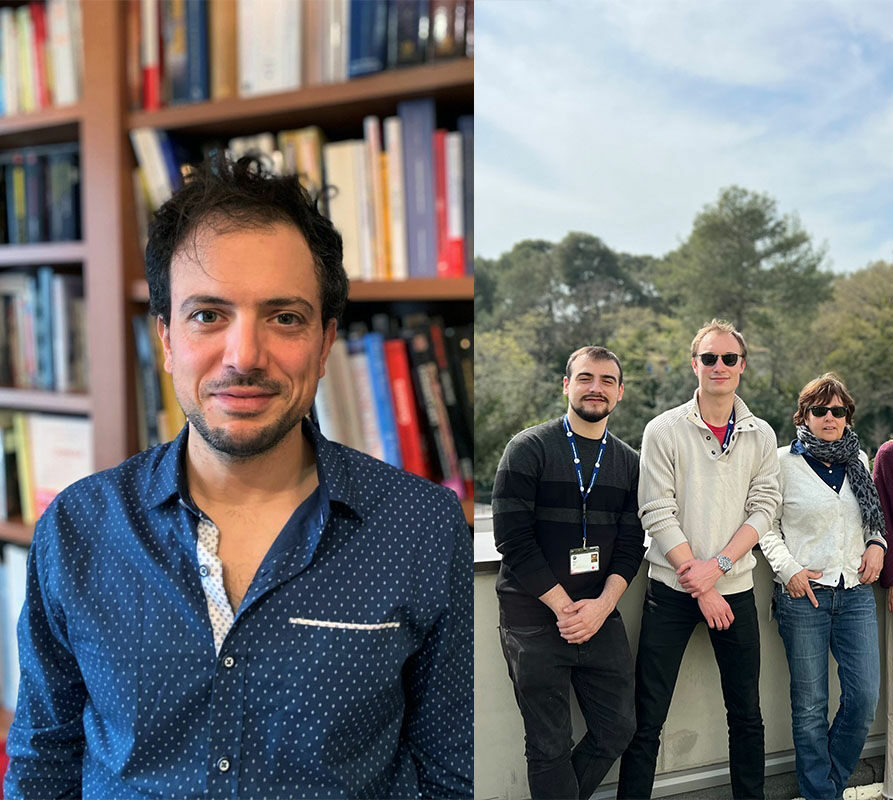Karim Majzoub: the smallest virus poses the biggest questions
Karim Majzoub heads the "RNA Viruses and Host Factors" research team at the Institute of Molecular Genetics in Montpellier (IGMM). Atip-Avenir award winner – MUSE 2020, he has been awarded a €1.5 million grant fromthe European Research Council ( ERC) to conduct his research on delta viruses. This virus causes hepatitis D in humans, but has recently been found in a large number of animal species.

Karim Majzoub specializes in virology. Following a global pandemic linked to a coronavirus, the relevance of his research is clear. The molecular biologist, who heads a research team at the Institute of Molecular Genetics in Montpellier (IGMM), is working on other viruses, namely hepatitis B and hepatitis D. These viruses also represent a public health challenge, with more than 200 million people affected worldwide.
For the past two years, he has been particularly fascinated by the delta virus, which causes hepatitis D. With 1,700 nucleotide base pairs (compared to around 30,000 for the coronavirus, for example), it is the smallest virus known to exist in animal species. This virus, which is only capable of encoding a single protein, is therefore entirely dependent on the functions of the host cell in order to replicate. It also needs to combine with the hepatitis B virus to become infectious, using the latter's surface proteins.
Jump the species barrier?
"This organism, which is on the edge of life, raises philosophical questions!" enthuses the researcher, who has several reasons to be delighted.
His research is highly relevant to current scientific developments. With the massive sequencing of environmental samples made possible by new metagenomic approaches, numerous publications mention the discovery of delta viruses in birds, reptiles, mammals, amphibians, and fish. In some cases, variants with very similar genomes have been found in species that are very distant from each other, leading to the hypothesis that this virus could jump the species barrier. Other results published in 2019 and 2020 show that the delta virus can bind to surface proteins of viruses other than hepatitis B.
Armed with these discoveries, Karim Majzoub contacted two teams involved in the research: one in Finland, which had discovered a delta virus in a boa constrictor snake, and another in Germany, which had made a similar discovery in a Panama rat. The new team then showed that the delta viruses in rats and snakes replicate in human cells! These results prompted him to apply once again for an ERC grant. After being rejected for the first grant on hepatitis, he was successful with the one on delta viruses. This project will enable him to gain a better understanding of the host cell factors necessary for the replication of this virus, to find therapeutic targets for antiviral treatment, and to understand how this virus can combine with other viruses to become infectious. The $1.5 million grant will fund five positions, including his own.
Zika and dengue viruses
This ERC grant is also the culmination of a busy scientific career. A career that—to top it all off—regularly makes headlines. Between 2009 and 2013, Karim Majzoub wrote his thesis on the antiviral response in Drosophila at the University of Strasbourg, with Jean-Luc Imler, just a stone's throw away from researcher Jules Hoffman, who won the Nobel Prize in Medicine in 2011 for his work on the receptors responsible for innate immunity in insects. With his thesis in hand, he went on to do postdoctoral work at Stanford University in California until 2018. There, starting in 2015, he used the latest CRISPR biotechnology to study the life cycles of Zika and dengue viruses in human cells. A year later, the Zika epidemic broke out in Brazil.
In 2019, he finally left San Francisco with his family to return to France, with other considerations in mind besides research: escaping the exorbitant cost of living—more suited to the salaries of Silicon Valley geeks than those of academics—and the education of his two daughters. A Marie Curie fellowship enabled him to join the Institute for Research on Viral and Hepatic Diseases in Strasbourg, then the IGMM in the summer of 2021. What can he say about his new southern home? "It's a perfect synthesis of Lebanon, California, and France!"concludes the Franco-Lebanese researcher.
